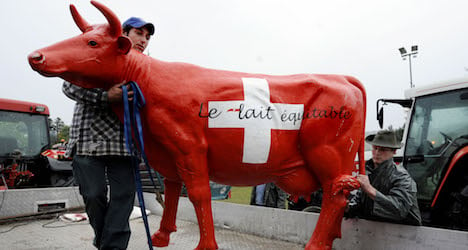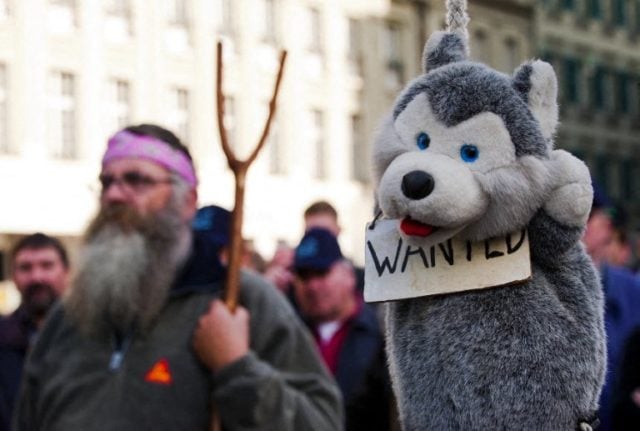Against a background of declining prices and increased competition from the European Union, farmers are demanding help from the government.
A sign of the desperation emerged last week when the 30-year-old operator of a pig farm killed himself after investing several hundred thousand francs in the operation but finding himself unable to make a profit, the Blick newspaper said in an online report on Thursday.
The incident is a reflection of “catastrophic times for Swiss farmers”, the daily said.
Two weeks ago a 60-year-old sugar beet farmer from Grenchen in the canton of Solothurn hung himself after running up debts and experiencing a marital breakdown, according to the report.
Earlier, a 50-year-old dairy farmer from Schnottwil in the canton of Solothurn also hung himself for similar reasons.
Also this fall, a 51-year-old potato farmer from Moudon in the canton of Vaud hung himself, apparently because he could see no way out of his financial difficulties.
“The mood among farmers is very bad,” Ueli Brauen, founder of the Save Swiss Sugar (Rettet den Schweizer Zucker) group.
“Some are so desperate that they choose to commit suicide.”
An agricultural family counselling and helpline says it annually helps out 130 farmers in difficulty.
“Economic pressure, mechanization and administrative expenses are increasing,” Lukas Schwyn, president of the group running the helpline, told Blick.
“Farming has become a demanding job.”
Swiss farmers are heavily subsidized compared to those in other countries but measures to align policies with those in the European Union are cutting subsidies.
The Swiss Farmers’ Union (SBV), which is organizing the demonstration in Bern on Friday, said prices for milk, sugar and pork are “disastrous” and many farms are teetering on the brink even before planned cuts in government subsidies.
“If conditions do not improve immediately more desperate farmers will commit suicide,” Schwyn told Blick.



 Please whitelist us to continue reading.
Please whitelist us to continue reading.
Member comments